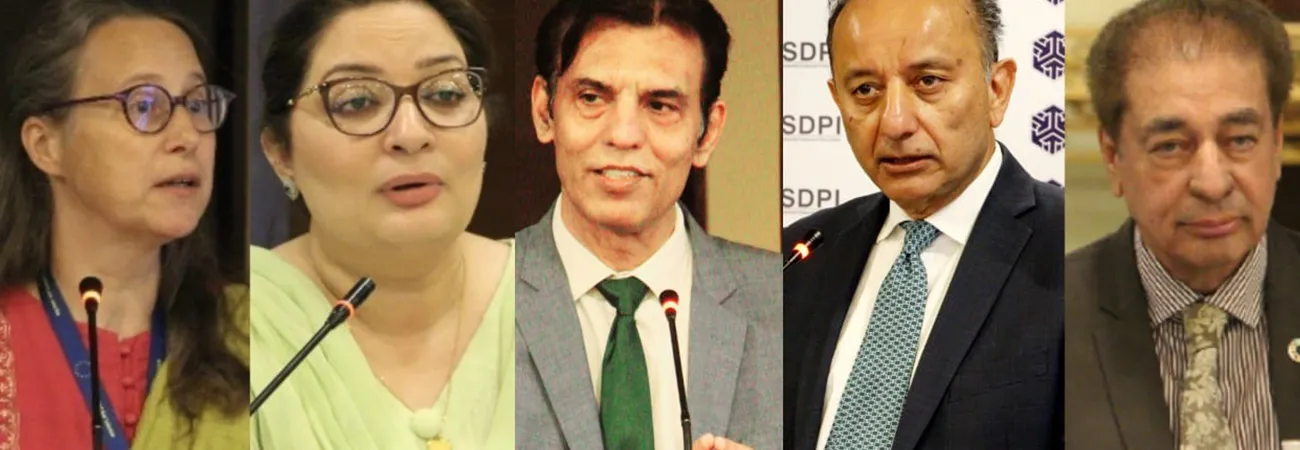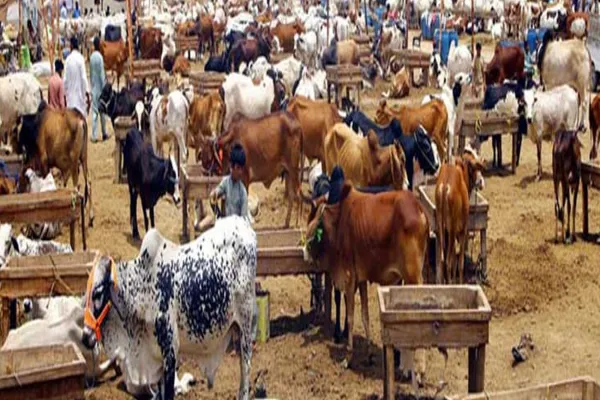i NEWS PAKISTAN
By exporting and importing the used textiles, Pakistan is embracing circularity as a cultural and environmental responsibility, stated Federal Minister for Climate Change and Environmental Coordination, Musadik Masood Malik while addressing a high-level policy dialogue on circularity and used textile trade in Pakistan. The said dialogue was organized by the Sustainable Development Policy Institute (SDPI) in partnership with the United Nations Environment Programme (UNEP) and supported by the European Union.
Federal Minister said, “Our organic traditions already promote reusing and recycling. Only 1% of our second hand clothing ends up in landfills. It proves that Pakistan is aligned with circularity in spirit that must be matched with technology, policy, and investment”. He emphasized the need to develop green audit capabilities in light of upcoming Carbon Border Adjustment Mechanism (CBAM) requirements by the EU that can be a hurdle for countries like Pakistan if green infrastructure would not be in place. We’re not resisting the green agenda—we’re adopting it for our future generations. But we will protest any unilateral framework that penalizes us despite our cultural legacy of sustainability, added Minister Musadik Malik.
Dr. Abid Qaiyum Suleri, Executive Director of SDPI, echoed the minister's sentiments. “Developing nations have long been dumping grounds for used textiles, carrying the environmental burden. But Pakistan is turning that around,” he said. “We are both an exporter and one of the largest importers of used textiles. Over 99% is reutilized, and we should proudly brand our recycled exports as green products, especially as CBAM and carbon-conscious trade reshape global markets.”
Sheila Aggarwal-Khan, Director of UNEP’s Economy Division, spotlighted the global scale of the issue. “The used textile market has the potential to grow from $1.8 trillion to $3 trillion by 2030. The sector consumes 200 trillion liters of water globally, with significant GHG emissions,” she said. “But there is economic value in reuse. If managed well, Pakistan can lead the Global South in textile circularity.”
Barbara Riksen, representing the European Union, reaffirmed the EU’s commitment to supporting circular partnerships. “In 2023, the EU exported 1.4 million tonnes of used textiles, 175,000 tonnes of which were received by Pakistan,” she shared. “Pakistan has shown it can manage textile waste effectively. Now, with better traceability and green value chains, it can become a sustainable partner in Europe’s circular economy.”
Battina Heller, Lead for the UNEP Textile Project, outlined the strategic shifts needed. “We identified three key priorities: changing consumption patterns, improving textile practices, and investing in infrastructure. This project, running from October 2023 to September 2025, includes Ghana, Kenya, Tunisia, and Pakistan as partners to drive systemic change.” Claire Thiebaut, also representing UNEP, emphasized the need for policy coherence in promoting circularity within supply chains, while Dr. Khalid Walid of SDPI introduced the "9 Cs" framework for a green textile economy—including climate, cotton, CBAM, consumer shifts, and circular credits.
Zainab Naeem of SDPI said, “Pakistan earned $283.9 million in export revenue from used textiles in 2024,” she reported. “The broader textile sector accounts for 59% of our total exports and employs a massive female workforce in sorting and refurbishing activities. Yet, there are glaring gaps in infrastructure and traceability that must be addressed.” Amna Urooj, team co-author of the SDPI Report on Circularity and Used Textiles Trade in Pakistan, highlighted the successful mapping of the second hand clothing value chain, emphasizing Pakistan’s efficient waste management practices.
Ambassador Shafqat Kakakhel, Chairman of SDPI’s Board of Governors, wrapped up the session by stating, “This initiative is rooted in our shared commitment to a sustainable, inclusive economy. With less than 1% of second hand imports ending in landfills and a strong cultural inclination for reuse, Pakistan is already ahead. Now, we need the right policy integration to scale this sector.” Beatriz Fernandez of UNEP commended the minister and all stakeholders. “We are grateful for Pakistan’s vision and leadership on circularity. This collaboration can set a global benchmark for sustainable textile trade.”
Credit: Independent News Pakistan (INP)








